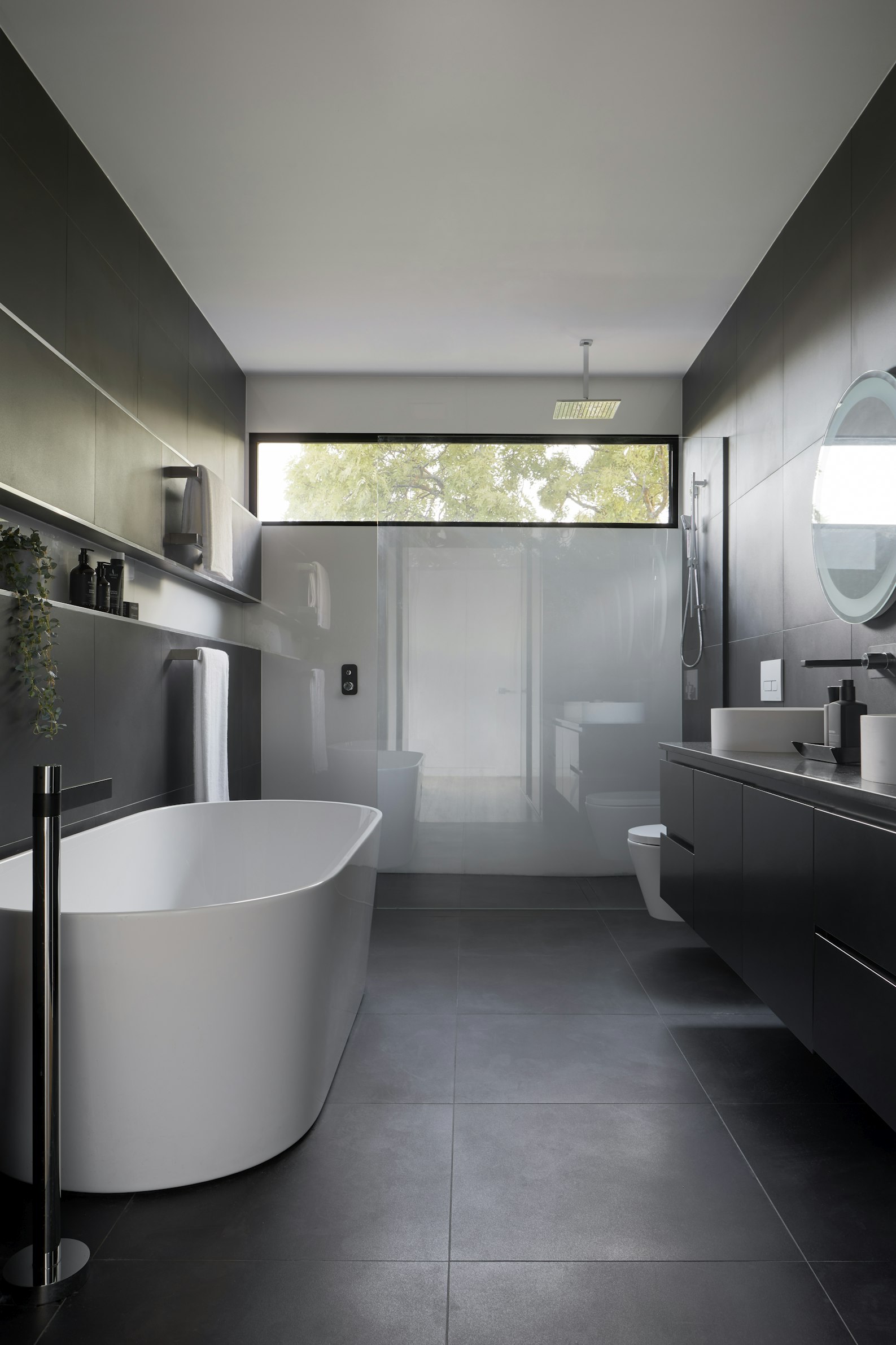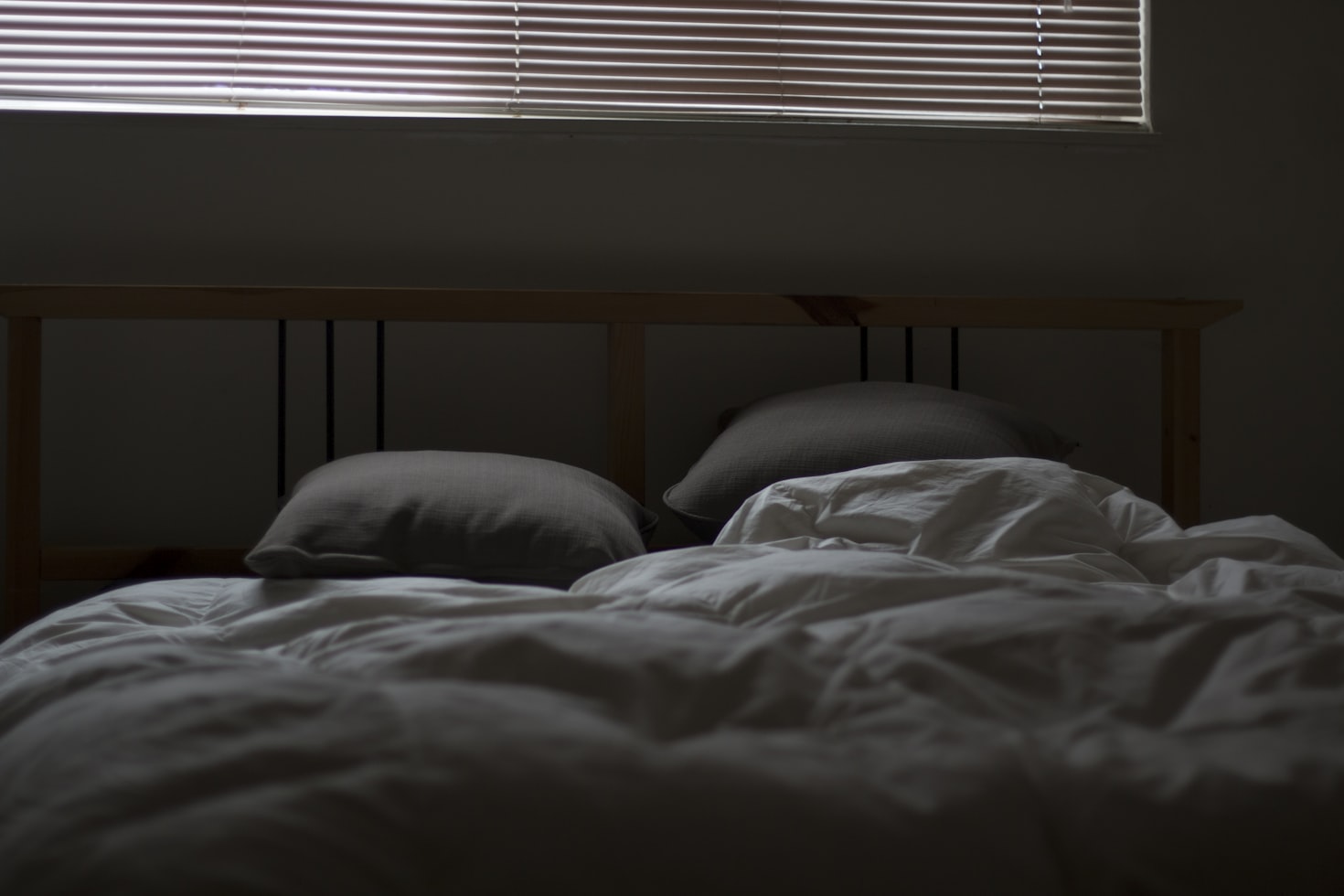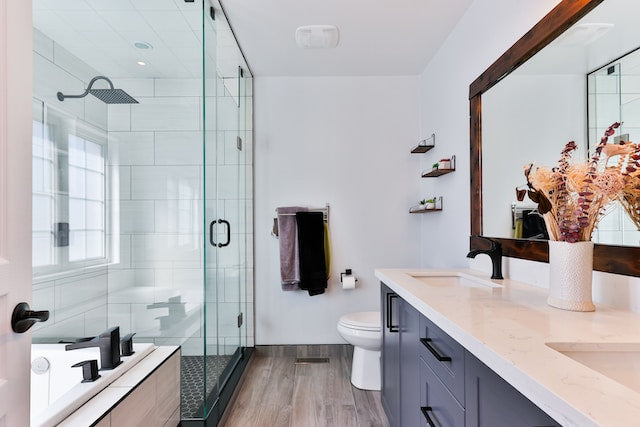For many people, waking up in the middle of the night to go to the bathroom is an occasional annoyance. But for others, it can be a significant contributor to disrupted sleep each night. And for individuals with obstructive sleep apnea, the combination of breathing disruptions and an overactive bladder can make getting a good night’s rest all but impossible.
While the two conditions may not appear to have much to do with each other (besides disrupting sleep), research suggests that there is more of a connection than there might seem to be at first glance. Here’s what you should know.
How Sleep Apnea Can Contribute to an Overactive Bladder

Both sleep apnea and overactive bladder cause sleep disruptions that essentially force a sleeping person to wake up. With sleep apnea, this occurs when the flow of air to the lungs is temporarily blocked as the airways collapse. With an overactive bladder, a person wakes up because they feel a strong need to urinate.
Both conditions typically keep individuals from being able to enjoy “continuous sleep,” often disrupting the sleep cycle and reducing both the overall quality and duration of sleep.
One of the key symptoms of overactive bladder is nocturia — in which a person experiences frequent awakenings to go to the bathroom during sleep. Roughly half of all people with obstructive sleep apnea also experience nocturia, with research revealing that untreated sleep apnea affects the hormone atrial natriuretic peptide (ANP) in a way that actually causes the body to produce more urine during sleep. As a result, people with untreated sleep apnea are more likely to experience nighttime urges to urinate, further disrupting their sleep patterns.
It’s also worth noting that untreated sleep apnea can lead to the development of type 2 diabetes. Diabetes can cause nerve damage to the urinary tract that contributes to overactive bladder and other similar conditions.
Can an Overactive Bladder Worsen Sleep Apnea?

As is so often the case, untreated obstructive sleep apnea creates a vicious cycle with other, related symptoms. Sleep apnea interferes with hormones in a way that worsens symptoms of overactive bladder. And as an overactive bladder results in even more sleep disruptions, it can further worsen symptoms of obstructive sleep apnea.
While an overactive bladder can worsen sleep apnea by further disrupting sleep, it isn’t going to cause the condition in the first place. However, whether someone experiences obstructive sleep apnea, overactive bladder, or both conditions, taking steps to mitigate their effect on sleep is an absolute must.
Disrupted sleep can significantly impact a person’s overall quality of life. Excess fatigue can increase the risk of falling asleep at work or while driving, which could lead to a serious accident. Ongoing poor sleep can cause symptoms of anxiety and depression. Poor sleep is also a known contributor to high blood pressure and heart disease.
Taking steps to improve overall sleep quality — including by addressing disorders like sleep apnea and overactive bladder — is essential for maintaining a good quality of life.
Taking Steps to Improve Sleep

So, how can you ensure that overactive bladder and sleep apnea don’t hurt your sleep? First, start by enacting some key lifestyle changes. Being overweight or obese is a leading contributor to obstructive sleep apnea. Consistent exercise and maintaining a healthy weight has been found to improve symptoms of both sleep apnea and overactive bladder. Similarly, avoiding the use of alcohol or caffeine before bed can limit the potential impact of both conditions.
Individuals with overactive bladder may also be prescribed behavioral therapy or medication to improve urinary control and reduce the need to urinate at night. Only in severe cases is surgery considered.
The best solution for controlling sleep apnea is a CPAP machine. By providing a consistent flow of pressurized air, a CPAP machine keeps your airways open for the entire night, preventing breathing interruptions so you can stay asleep. For people who also frequently wake up to urinate, a CPAP machine that automatically starts and stops when you put on or remove your mask can help improve compliance for the entire night.
In extreme cases, surgical treatments may also be considered for sleep apnea, but for most people, consistent use of a CPAP machine will be enough to keep breathing disruptions under control.
Of course, the first step to understanding and managing these conditions is to speak with a medical professional. Consulting with a sleep specialist and urologist will give you an opportunity to go over your symptoms and undergo tests such as a sleep study to get an accurate diagnosis. With this information in hand, your doctors can provide a personalized treatment plan that caters to your specific needs.
Get Quality CPAP Equipment to Sleep Well Again
While a CPAP machine can go a long way in mitigating the effects of sleep apnea, there is no denying that this essential medical equipment can be rather costly, especially if you don’t have health insurance. This is where No Insurance Medical Supplies comes in.
At No Insurance Medical Supplies, we offer significant discounts on both new and certified pre-owned CPAP machines, making it easy to find quality equipment at a price you can afford. With our best price guarantee, free shipping on most orders over $99, and available financing on orders over $500, you can get the equipment you need so you can start sleeping better. Inventory is in stock now, so you don’t have to wait to get the help you need.

